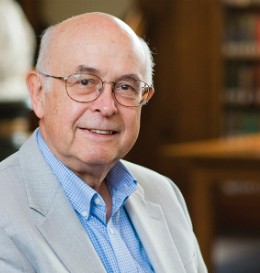The way open to other ways: Paul Knitter, Buddhist Christian

Since his 1985 book No Other Name? Paul Knitter has been exploring religious pluralism and interreligious dialogue. He is especially concerned with how religious communities of the world can cooperate on issues of social justice and the environment—the topic of One Earth, Many Religions: Multifaith Dialogue and Global Responsibility (1995). He has taught at Xavier University in Cincinnati and at Union Theological Seminary in New York, and has long been active in CRISPAZ, an ecumenical peacemaking organization in El Salvador. His personal multifaith journey is recounted in Without Buddha I Could Not Be a Christian (2009).
In Without Buddha I Could Not Be a Christian, you say you needed resources outside Christianity to make sense of Christianity. Could you mention an aspect of the faith that didn’t make sense and say what Buddhist resources helped you?
I think that the uneasiness I had with much of the Christian creed had to do with its pervasive (but not necessarily inherent) dualism between God and the world. In much Christian speaking and preaching, God is referred to as an almighty but benevolent being who is in charge of everything and intervenes here but not there. Granting that we can’t avoid anthropomorphisms in speaking about the Ultimate, Christians seem to take their anthropomorphic images literally. In line with the Christian mystics—including Paul and John in the New Testament—I was searching for a nondualistic God.




